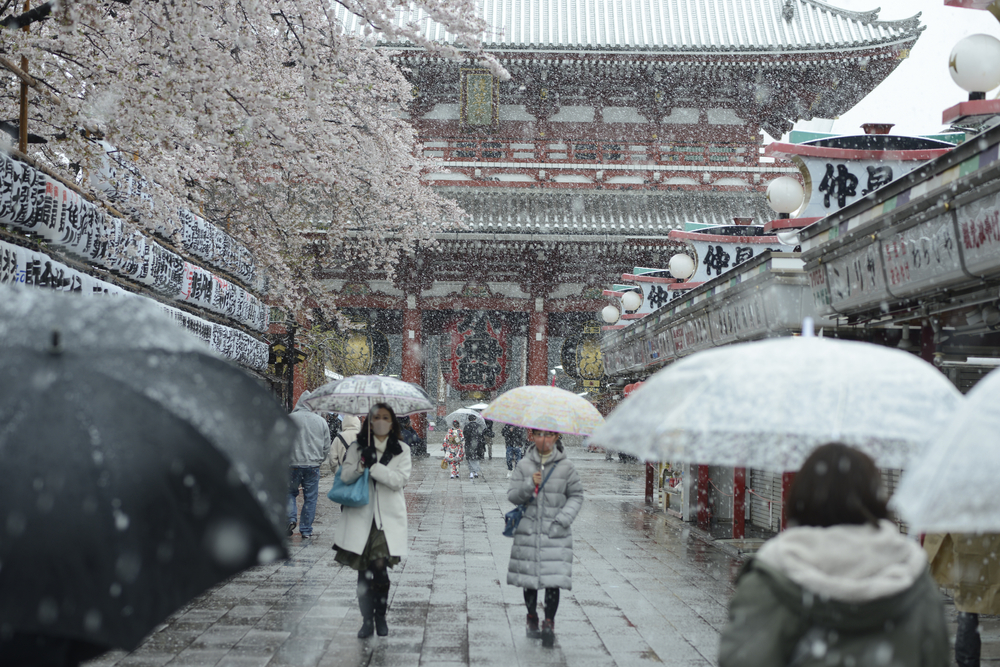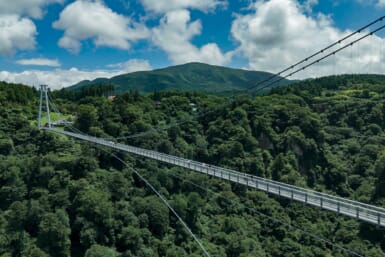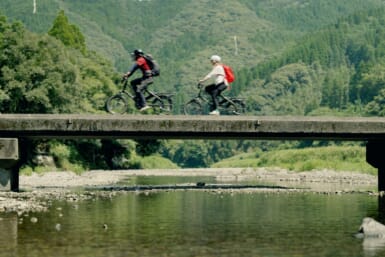As cherry blossoms continued to bloom across Japan this weekend, a belated powdering of snow settled on the capital come Sunday morning. Any other year would have seen the Japanese public rejoicing in this rare and natural juxtaposition of spring and winter phenomena, yet the streets were rather more forlorn as Tokyo adopted an eerily quiet presence.
In the wake of the unprecedented decision to postpone the Tokyo Olympics until 2021, the Japanese capital entered its weirdest weekend since the novel coronavirus began to dominate global headlines. The number of known COVID-19 cases in Tokyo began to climb each day last week, raising concerns that exponential growth was on the horizon. As a result, Tokyo Governor Yuriko Koike requested all citizens to refrain from going outdoors unless absolutely essential.
A range of Tokyo businesses complied with the pseudo-lockdown protocols, including Toho Cinemas, major department store chains and most Starbucks branches in the prefecture. While on Thursday and Friday evenings, supermarkets across Tokyo looked to have been besieged by a plague of essentials-eating locusts: Vacant shelves that once hosted rice, toilet roll, tofu, meat, milk and the other staples of Japanese panic buying, stared back at crowds of shoppers.
On a positive note, this suggests Tokyo is willing to comply with an official lockdown come when it may. But the politicization of decisions is making the pathway long and laborious. The question is: Do we have the time to waste?
So much for social distancing. Tokyo residents seem to ignore warnings from their government about a spike in coronavirus cases, packing the Meguro river to view the cherry blossoms on a weekday afternoon. pic.twitter.com/hSnc02JYnz
— Will Ripley (@willripleyCNN) March 26, 2020
One Step Forward, Two Steps Back?
Following Tokyo’s weekend-long isolation, many workers were dutifully trudging back to work on Monday, commuting on packed trains, and leaving behind social distancing measures for another week of the 9 to 5 (or Japan’s extended version of that to be more accurate). This is baffling no matter which way you look at it.
Unfortunately, viruses do not hibernate throughout the week. Sunday also saw the highest number of new COVID-19 cases in Tokyo for the seventh day in a row; a number that is almost certain to keep rising. Never mind that Governor Koike and Prime Minister Abe both warned of the dangers of Tokyo’s healthcare system becoming overwhelmed in the near future.
In keeping with pandemic responses worldwide – including those that have stifled the viral spread, like in South Korea and China – Tokyo could institute a prolonged lockdown (initially 21 days) to try contain the virus. The problem however, lies in the flimsy laws available to government officials, and their hesitation over infringing on our civil liberties.
Japan's coronavirus cases top 2,000 https://t.co/Z94AOq1Bxm
— NHK WORLD News (@NHKWORLD_News) March 31, 2020
Messy Logistics
A renewed state of emergency bill was passed in March, while coronavirus task forces were established within the national and prefectural governments last week, essentially carving out an efficient route to declare the virus a national emergency.
In spite of his increasingly foreboding press conferences, Abe insists Japan has yet to reach a rate of infection that would call for such measures. But with the health ministry estimating another 530 COVID-19 cases in Tokyo by April 8, and around 700 new hospital patients a day when the virus peaks, one has to wonder where the tipping point is.
Satoshi Kamayachi, an executive board member of the Japan Medical Association, said at a news conference on Monday, “If we wait until an explosive increase in infections before declaring an emergency, it will be too late.”
Following a state of emergency declaration, Koike (and her fellow prefectural governors) would have the legal power to respond to the virus within their own jurisdictions. Though for now, she maintains a citywide lockdown is the ‘worst-case’ scenario.
Calls grow for Japan to declare state of emergency over coronavirus https://t.co/sQCjWmouUi
— The Japan Times (@japantimes) March 31, 2020
Lockdown in Practice
Looking at other democratic nations which have imposed lockdowns might not be the best gauge as to how it would play out in Japan. As Kansai University Professor Katsuhiro Miyamoto told The Japan Times: “Here in Japan, a ‘lockdown’ is nothing more than a strong request. It’s the governor trying to get residents to stay put by asking nicely… there will always be people who don’t listen, and because of them, the entire city is at risk.”
Ultimately with so many Tokyoites reliant on trains, lockdown compliance hinges upon closure of public transport. It’s a sad fact of Japanese corporate life, that if there’s a viable means of getting to work, and no risk of punishment for not adhering to stay-at-home requests, people will continue to go to the office.
However, according to The Japan Times, urban planning expert Hiroo Ichikawa says railway lines may be forced to shut in the case of a citywide lockdown – even though they are owned by private enterprises. This would set in motion a chain of events that would see schools, theatres, museums, bars and restaurants soon meeting similar fates.
With no legal power to punish citizens who exercise freedom of movement, lockdown compliance has become a hot topic. In some prefectures, public shaming of offenders has been used as a deterrent; a traditionally irredeemable sin in Japanese culture. But this state version of sending bad boys and girls to the naughty chair to think about what they’ve done is hardly likely to hold up in modern society during an economy-halting lockdown – especially in a metropolis the size of Tokyo.
Japan expands entry ban https://t.co/uocAZH9U2i
— NHK WORLD News (@NHKWORLD_News) March 31, 2020
Up in the Air
These are muddy waters through which to navigate, with the economy and a public health crisis being pitted against one another. Following the Olympics’ postponement, Japan may not be able to take another huge financial hit, but people’s lives are not dispensable.
More travelers have been banned from entering Japan, and Koike has urged people to continue avoiding restaurants, public gatherings and venturing out in the evenings. But the longer the administration ponders over decisions, the more difficult the next stage of COVID-19 combat will be.
Feature photo: image_vulture / Shutterstock.com









